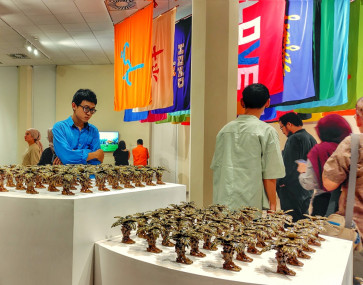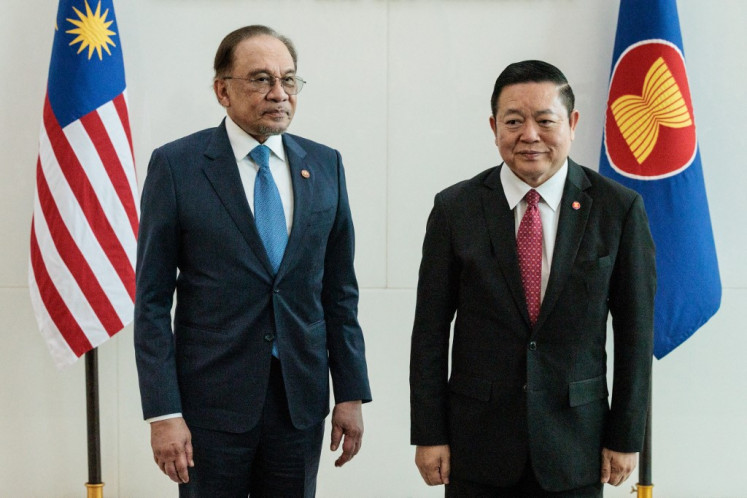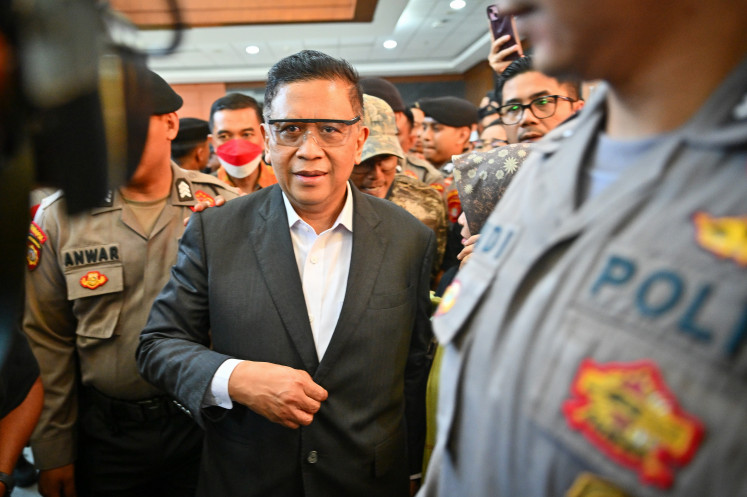Popular Reads
Top Results
Can't find what you're looking for?
View all search resultsPopular Reads
Top Results
Can't find what you're looking for?
View all search resultsIssue: Huge delegation to the UNFCCC
Dec
Change text size
Gift Premium Articles
to Anyone
D
ec. 18, p. 4
The UN Framework Convention on Climate Change (UNFCCC) conference in Durban, South Africa, has just ended. The huge number of Indonesian delegates, however, is one interesting point to note.
As seen in the conference’s list of participants, Indonesia sent 230 delegates, the second largest after Brazil with 289 delegates. Other ASEAN countries sent a smaller number, such as Brunei with 12, Malaysia 22, the Philippines 48, Singapore 49 and Thailand 51.
As we understand, the UNFCCC conference discusses issues and future actions for climate change mitigation and adaptation.
This year, the 17th session of the conference has its own distinctive significance to determine the future climate regime since the first carbon reduction commitment period under the Kyoto Protocol will expire next year.
Despite the importance of the conference, sending 230 people to one conference is an act beyond reasonable limits. (By Evan Oktavianus and Ary Adiati, Jakarta)
Your comments:
From the list of delegates, the Foreign Ministry only sent six people, while the Finance Ministry sent three high ranking officers without any assistants.
These are two ministries that perform much better compare to the others, and it reflects on their choice of delegates.
Deddy
In general, civil servants in Indonesia tend to use loopholes in the regulation of public budgets to receive additional incomes beside salaries.
To eliminate this kind of wasted public expenditure, the ministry of finance has to review many loopholes in the regulation of budgets in various ministries.
The budget for travelling should be limited only for important missions that have a direct impact on economic development.
All ministries try to spend 100 percent of their budget.
Abdullah
This is the sad reality of government bureaucracy in Indonesia, from independence until now.
Civil servants are more interested in spending state budgets in projects that give benefits to themselves, either directly or indirectly.
The most important thing for civil servants is to spend as much of the budget allocated to their department as possible, quantitatively not qualitatively.
They never think about the efficiency of budget expenditure. If necessary, they are ready to steal it.
Civil servants prefer to spend public money for the purpose of traveling rather than to assist the damaged teak forest in East Java, for example.
This is because traveling is a form of a disguised holiday, paid by public money.
Imagine how many new trees could be planted if Indonesia sent 25 delegates to negotiate in Durban?
Hopefully, Indonesia will send only 20 highly skilled negotiators to the climate conference next year in Qatar.
Petan
A proportion of the many, many billions spent on “fighting climate change” every year is also spent on the care and feeding of political and “scientific” delegations at international conferences.
I’m sure that Indonesia sent at least as many nongovernmental organization representatives to the last conference.
The primary qualification to attend is a willingness to expose the script on “climate change” and why it is a good idea to reverse all progress of the last five hundred years, or more.
Ron Real










